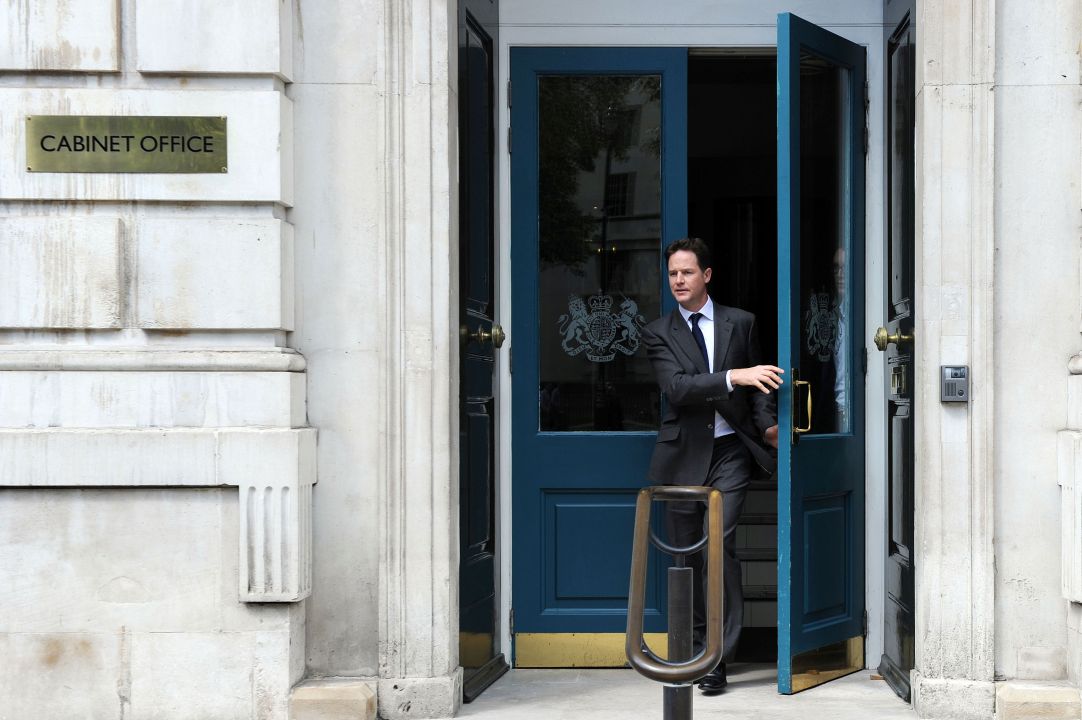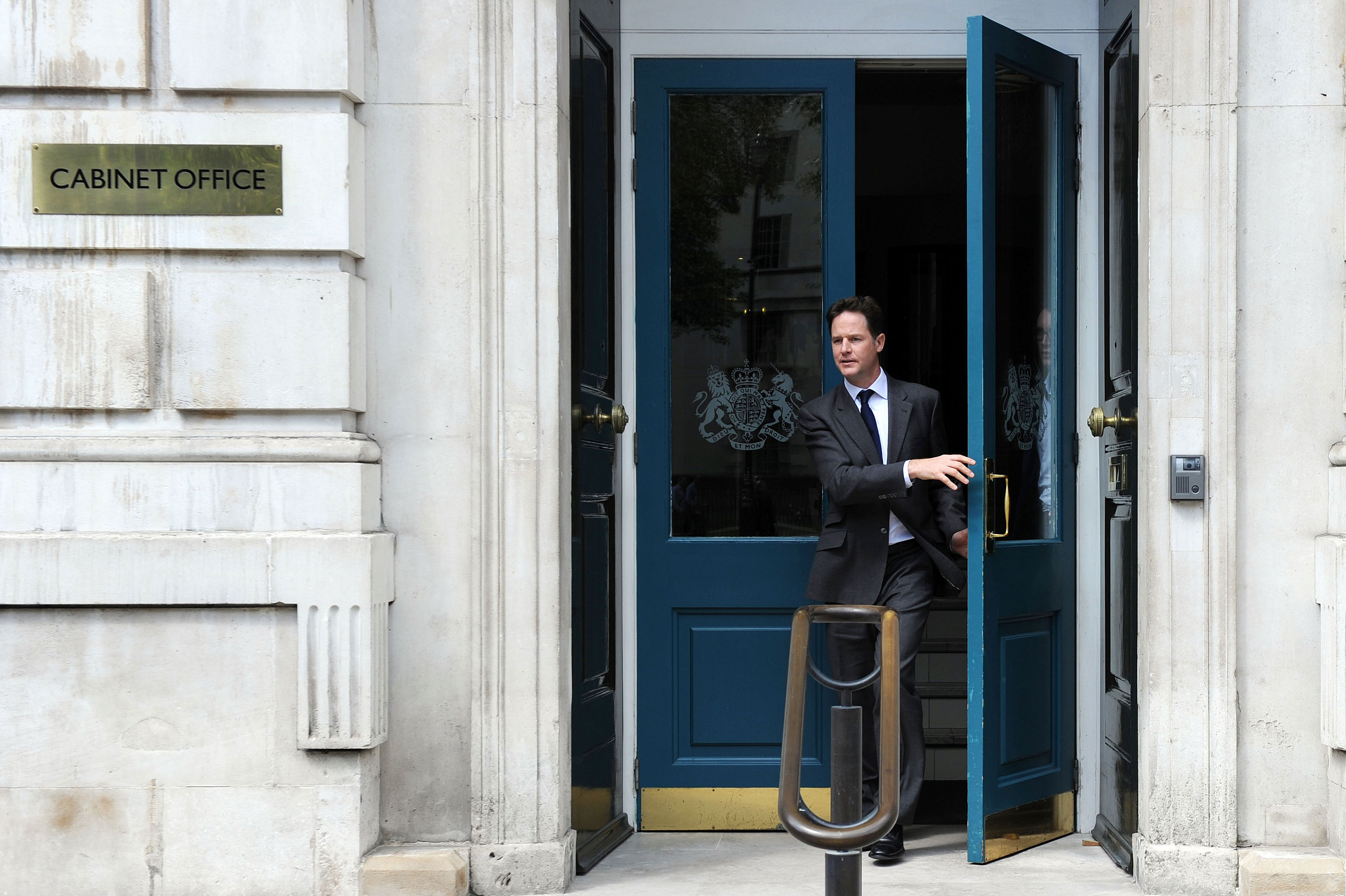Here’s an interesting factoid. We have gone the longest time since any serving Cabinet Minister has lost their seat… ever. Seven were booted out in 1997, most famously Defence Secretary Michael Portillo in Enfield Southgate – an experience shared by just 32 people since 1900. To some extent, MPs from marginals may be less likely to reach the Cabinet: they are by definition more likely to be newly elected and are forced to spend vast amounts of time and energy campaigning in their constituency, from which a Cabinet role can serve as a distraction.
2015 seems likely to end this streak, with five names around the current Cabinet table looking precarious.
Chief Secretary to the Treasury: Danny Alexander (Liberal Democrat)
Inverness, Nairn, Badenoch & Strathspey
Majority over Labour: 8,765
Majority over SNP (main challengers): 10,369
Likelihood of loss (electionforecast.co.uk): 99%
Likelihood of loss (Ladbrokes odds): 82%
A seat as vast as its name is long, Wee Danny gained his seat from Labour in 2005 – but Inverness has a Liberal history going back over a century. Being a Treasury Minister gives you an extraordinary ability to, ahem, ‘deliver the goods’ for your constituents – whether that be cheaper fuel, lower utility bills, a City Deal, a cut in duty on scotch whisky or even £2 million for Loch Ness tourism. This year, despite a feverish campaign aimed at uniting the Unionist vote behind his candidacy, the Nationalist tide seems almost certain to wash the Chief Secretary away.
Minister of State for Employment: Esther McVey (Conservative)
Wirral West
Majority over Labour: 2,436
Likelihood of loss (electionforecast.co.uk): 73%
Likelihood of loss (Ladbrokes odds): 50%
Ok, not technically in the Cabinet – but she attends it. Wirral West is the most affluent constituency in Merseyside with a strong Conservative heritage. It moved strongly towards Labour under Tony Blair and is just the sort of middle class Northern seat where the Conservatives need to hold on. Despite finding that 67% of voters thought the economy was going well for them a Lord Ashcroft poll last month found Labour 5 points ahead. It was however the Conservatives who led by 9 points in last year’s local elections. Being Minister for welfare cuts – or, as a Daily Record headline would have it ‘despised Tory hatchetwoman’ – is not exactly the ideal role for ‘bringing’ home the bacon and this seat seems set to go down to the wire.
Education Secretary: Nicky Morgan (Conservative)
Loughborough
Majority over Labour: 3,744
Likelihood of loss (electionforecast.co.uk): 31%
Likelihood of loss (Ladbrokes odds): 36%
A bellwether since boundary changes took effect in February 1974, the Conservatives will hope that Nick Morgan won’t have been too distracted by being Education Secretary not to have built up a personal local following. Its large student population (21% of the total), thought more likely to favour Labour than the Conservatives, could find themselves disenfranchised or voting in their home constituencies by the move to individual registration. In 2010, all Loughborough University halls will have automatically registered their students – not this time. An Ashcroft poll in October had the Conservatives ahead by 3 points and this result may end up surprising pundits.
Energy and Climate Change Secretary: Ed Davey (Liberal Democrat)
Kingston & Surbiton
Majority over Conservatives: 7,560
Likelihood of loss (electionforecast.co.uk): 11%
Likelihood of loss (Ladbrokes odds): 31%
The setting of the 1970s comedy The Good Life, the seat is viewed as the most vulnerable of the South West London Liberal Democrat seats this time, following the loss of neighbouring Richmond Park in 2010. Davey famously won in 1997, despite the fact the seat was not a target, by just 56 votes – and translated that to 15,676 in 2001. Their capture of Kingston Council last year after twelve years of Liberal Democrat control has made local Conservatives sense blood, but the 18-year incumbent is thought to be well enough established to hold on. Key to this will be holding on to Labour tactical votes despite the Coalition – the party’s share having reduced from 23% in 1997 to just 9% in 2010.
Deputy Prime Minister: Nick Clegg (Liberal Democrat)
Sheffield Hallam
Majority over Conservatives: 15,284
Majority over Labour: 19,096 (main challengers)
Likelihood of loss (electionforecast.co.uk): 17%
Likelihood of loss (Ladbrokes odds): 29%
If Labour win Sheffield Hallam, it will be the largest majority any party has overturned in a general election in modern times. Various polls, including one published by Lord Ashcroft this week, point to them doing so. It was not meant to be this way: a Conservative seat from the First World War until 1997, the wealthiest in Yorkshire, was meant to be beyond far Labour’s reach. But such constituencies are moving leftwards and Sheffield University has been one of the few to include voter registration in its student induction process. It is also interesting to note that the fact the Lib Dems led Labour by 13 points in last year’s local elections in the seat suggest it may be a specifically Nick Clegg problem. That said, previous attempts to ‘decapitate’ party leaders – like the yellows’ own foray into Michael Howard’s Folkestone & Hythe in 2005 have led to disappointment for the challenger.







Comments